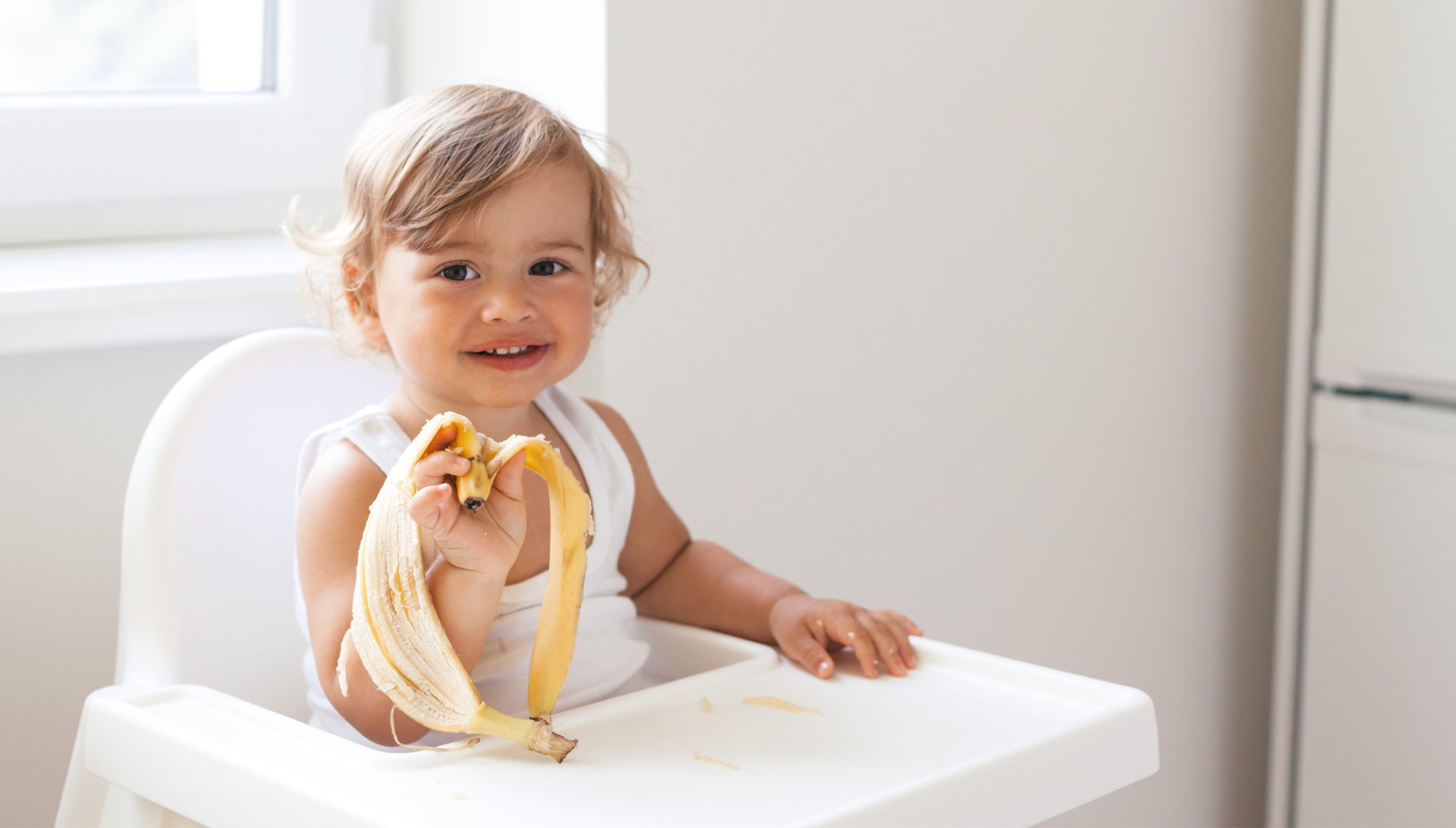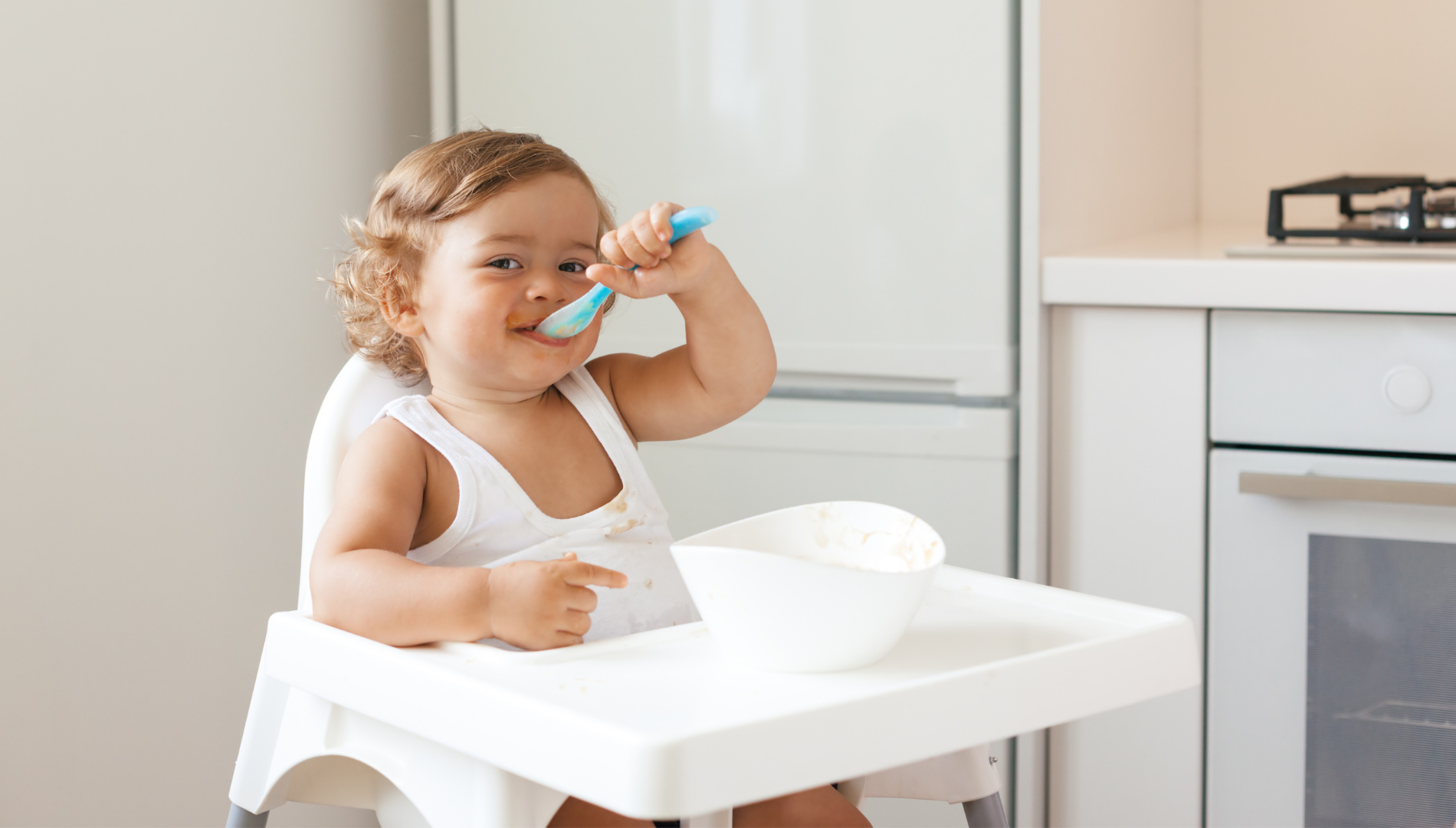Introducing Your Baby to Their First Foods

Good eating habits start early and deciding what to feed you baby is one of the most important things you will do as a new parent. You may be feeling overwhelmed at the thought of having to choose what and when to introduce food to your little one. But don't worry, we've got you covered!
This blog post will give you some tips on how to choose the right foods for your little one and how to go about it. Happy feeding!
How do I know my baby is ready for solid foods?
Most babies start showing signs that they are ready for solid food at around 4-6 months of age. Before that age, babies get everything they need from breast milk or baby formula.
Don't rush into feeding your baby solids before they show signs that they are interested in it. Your baby will let you know when they are becoming interested in eating food by:
- Reaching out for food
- Bringing objects and toys to their mouth
- Opening their mouth when shown yummy food
- Accepting food from your spoon
- Showing a chewing action
Your baby also needs to be at the right developmental level to ensure they can tolerate solids safely and should be able to:
- Have good head control
- Sit upright with minimal support
- Have the ability to use their tongue to move food into their mouth. If your baby is pushing food out with their tongue, they are not yet ready for their first foods.
What do I feed my baby?
Solid foods are just that, a "solid" source of nutrients along with breast milk or infant formula. Offer your baby a variety of nutritious foods from the five main food groups: fruits, vegetables, grains, meats and alternatives, and dairy and alternatives as described by the Australian Dietary Guidelines. Ensure that you include iron rich foods as first foods. You can otherwise introduce solids in any order depending on what your baby likes.
Unless your baby has an obvious allergy to a specific food, it is recommended to also introduce common allergenic foods at the same time as other foods. Food allergies are complex, if you are concerned, discuss this with your child's doctor.
Choose first foods with different colours, textures, smells and flavours for your baby to explore and experience. Your baby may need to try a new food many times before they like it.
To start, choose foods that are pureed or blended which are easier to swallow and pose a lower risk of choking.
Good foods for babies around 6 months old
Any pureed foods or finely mashed foods are fine, but make sure that you include iron rich food, such as:
- Baby iron-fortified cereals with breast or formula milk
- Well-cooked, pureed meats, poultry, or fish (no bones)
- Pureed legumes such as baked beans (without added salt)
As the baby grows and becomes accustomed to foods you can try adding new textures to your baby's feeding routine. Gradually give them foods that are thicker, chunkier, and lumpier. At around eight months, you can start to give your baby finger foods to hold. They may need a bit of help to get the food into their mouth! These foods should be soft, so your baby does not choke.
Here are a few finger food examples
- Soft-cooked vegetables: broccoli, carrots, pumpkin
- Chopped soft fruits such as banana or kiwi fruit
- Sliced avocado
- Cheese cut into sticks

From around 12 months of age, your baby can start having family foods. This means that your baby can start having the same foods as you. You can make the meal easier for your baby by cutting it up into smaller bite-sized pieces.
What drinks do I give my baby?
Until around 6 months of age, breast or formula milk is the only drink your baby needs. After 6 months, you can start to introduce cooled boiled water into your baby's diet and increase this as they grow. It is recommended not to give cow's milk until 12 months of age, but small amounts added to foods are OK.
Your child can continue drinking breast milk or formula for as long as desired. Whole cow's milk can be introduced as a drink after 12 months of age. Low-fat milk is not recommended before age of 2 years, as it does not contain enough fat to keep your baby healthy. If you prefer a plant-based diet it is best to talk to your health professional about introducing plant-based milk such as oat, almond, coconut, or rice milk to ensure your baby receives all the nutrition it needs.
Are there any foods or drinks my baby should avoid?
Food has a lot of natural flavour and there is no need to add salt or sugar to your baby's food. Too much salt is bad for your baby's kidneys and heart and too much sugar can lead to tooth decay.
If you are using commercial infant products then check that they do not contain added salt or sugar, which can often hide under different names. Commercial baby food can be very convenient and is okay to give to the baby sometimes but should not be the only food you give your baby. Making your own baby food is often cheaper and healthier and should make up most of what you feed your baby.
Avoid giving you baby food and drink high in sugars and/or salts such as:
- Sugary drinks including fruit juice, soft drinks, cordial, sport or energy drinks and flavoured milks
- Desserts such as ice-cream, lollies, jelly and custards
- Sauces including soy, gravy, tomato and BBQ sauces
- Instant soups and noodles
- Stock cubes or liquids
This list does not include all sources of salts and sugars. When giving processed foods read the nutrition information panel and ingredients list located on the back of product packaging.
Hard foods may be choking hazards and should not be given to your baby. This includes:
- Whole nuts and seeds
- Popcorn
- Whole grapes or cherry tomatoes
- Hard fruits such as apples or raw vegetables such as carrots
Honey should also not be given to a baby under 12 months as it can cause botulism that can make your baby very ill.
How much food does my baby need?
As a new parent, it's hard to know what you should be feeding your baby at first and how much they can have in one sitting! To begin with, give your baby their normal milk feed followed by 1-2 spoons of their first food. This allows your baby to get used to food and become accustomed to the different tastes and textures. Don't worry if your baby spits the food back out or pushes it away – this is par for the course!
Every baby will eat different amounts. You might be tempted to load your baby up with food in the early days, but it's important not to give them more than they can manage. The idea is that your baby learns how to regulate their appetite and develop their own sense of how much they want at each sitting.
If your baby starts to show signs of being full, don't offer any more food. Your baby might show signs when they have had enough such as turning their head or closing their mouth when offered food or they might look sleepy. It is important not to force food on your baby as this can lead them to developing a negative relationship with food.
Final Thoughts
Introducing your baby to new foods is an important step in their development. There are many different approaches you can take, but it's best to introduce them to a variety of flavours and textures when they're ready for solids at around six months of age.
Be patient with your little one as they explore food. Try not to force anything on them or give up if they refuse something the first time around. Letting the child have some control over what goes into their mouth will help establish healthy eating habits that can last a lifetime!
If you have any concerns, don't be afraid to talk to your doctor or dietitian about introducing solids.
Introducing your baby to foods should be a fun, relaxed experience. Wishing you many happy and successful mealtimes with your little one!

Want to know more?
Below are additional resources and guidelines that will help you on your first foods journey.
- Infant Feeding Guidelines - eatforhealth.gov.au
- Introducing solids - Department of Health Australia
- First Foods: Food from Home - Get Up and Grow
- Baby’s First Foods - Children’s Health Queensland
- Starting Solids for Preterm Babies - Nutrition Education Materials Online
- Introducing First Foods or Solids - LEAPS




